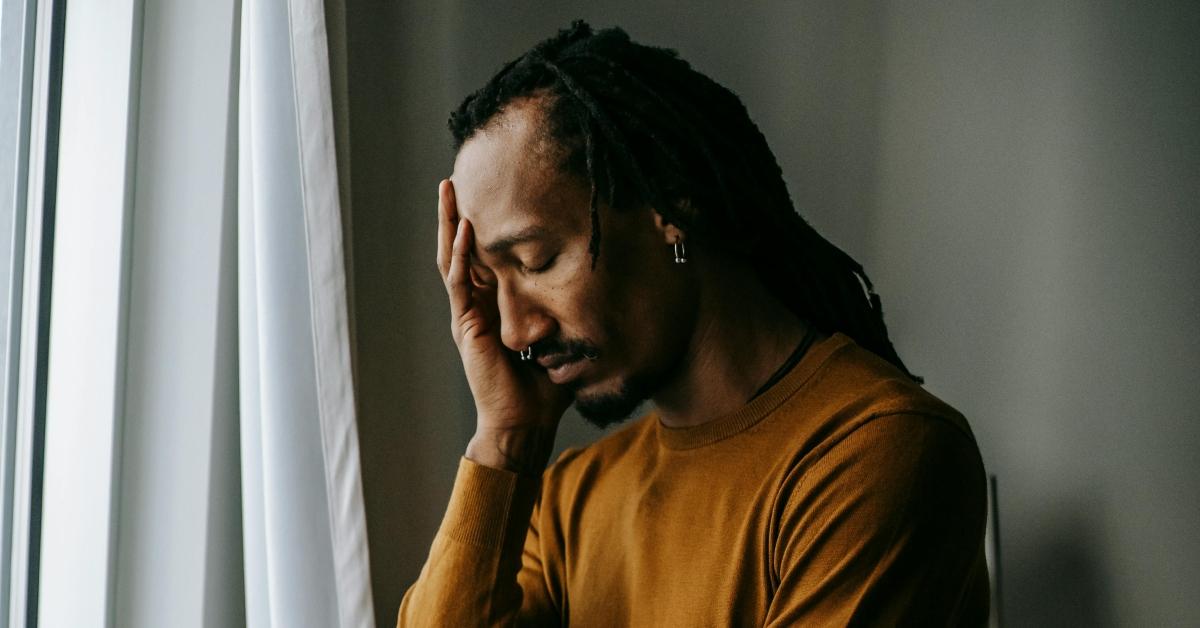
Toxic Masculinity and Mental Health: Is There a Crisis in the Black Community?
The Black community's relationship with toxic masculinity isn't new — but it is harmful. Here's an explanation of the connection between the two.
By S.Y.April 2 2024, Published 12:53 p.m. ET
The conversation around Black masculinity and mental health in the Black community is complicated, especially as it relates to Black men. In a society that often equates strength, resilience, and stoicism with masculinity, Black men often have to walk the line between maintaining their core identity and showing up as their true selves.
While that identity might look different for each individual, Black men are often placed in a box.
*Toxic masculinity has entered the chat.*
This dehumanizing pressure to "man up" has resulted in mental health challenges within the Black community. The connection between toxic masculinity and mental health must be explored in order to create healthier narratives and support systems within the community.

A Black man looks at his reflection in wall-mounted mirror.
Toxic masculinity and mental health: Is the Black Community in Crisis?
The idea that men always have to be strong pushes the notion that expressing vulnerability or seeking help is a sign of weakness. This is especially true in the Black community, making it more challenging for Black men to express themselves.
Very often, these suppressed feelings can show up in other unhealthy ways, causing a domino effect that can be hard to recover from. For Black men, this pressure to conform to stereotypes of strength and invincibility can be stifling. The added historical context of systemic oppression and the legacy of racism does nothing but compound these expectations.
According to a research study, approximately 56-74% of Black males who had "experienced extremely traumatic events had unmet needs for mental health services or underutilized them."
This is a staggering number because, in addition to the impact of trauma, the suppression of emotions can have profound implications for mental health. Bottling up emotions can lead to increased stress, anxiety, and depression, as unresolved feelings can manifest in unhealthy ways.
Most Black men feel like they are sacrificing their emotional well-being for public perception
Hyper-masculinity is glorified and even rewarded in the Black community, often at the expense of emotional well-being. For many young Black boys, society pushes them to embody dominance and hypersexuality. There is also the expectation that these factors occur alongside emotional detachment.
However, this push for hyper-masculinity not only influences harmful stereotypes but also deprives many Black men of the emotional range and authentic expression that are part of human life.

A Black man looks depressed while standing near a window.
The overwhelming pressure to conform to these narrow ideas of masculinity can also lend itself to a bigger problem: a dissociation from the true self, which can contribute to unhealthy feelings of inadequacy. This is evident in studies that confirm that suicide rates among Black men are astronomical.
By challenging the notion that strength equates to emotional detachment, Black men can reclaim agency over their identities and prioritize holistic well-being.
Many Black men suffer in silence and shut down their emotions completely. Despite the growing number of available resources, it is easy to become reluctant to ask for help.
The ties between toxic Black masculinity and mental health are multifaceted and ingrained in societal expectations, and if you or anyone you know has experienced anything remotely similar, please reach out for help.
There are many resources available including initiatives like the No Shame Movement and the Black Mental Health Alliance.
If you or someone you know are experiencing suicidal thoughts, call, text, or message the 988 Suicide and Crisis Lifeline. Dial or text 988, call 1-800-273-8255, or chat via their website.
The author’s content and opinions have not been pre-reviewed, approved or endorsed by Discover.

